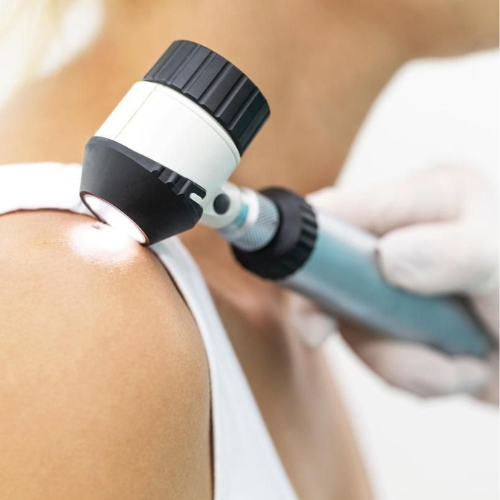Dilated pores
As the body's largest organ, the skin plays an essential role in protecting us from external aggressors and regulating various physiological processes. Skin is also a reflection of our overall health, lifestyle and emotional well-being.
Taking care of our skin is therefore crucial to maintaining its health and appearance. This includes adopting a skincare routine tailored to our individual needs, protecting against damage from the sun and external elements, a balanced diet and adequate hydration, as well as stress and lifestyle management.
By investing in healthy skin care habits and consulting health professionals when necessary, we can help preserve our skin's youthfulness and radiance, while promoting our overall well-being.

Dilated pores, also known as visible pores or open pores, refer to larger-than-normal hair follicles on the skin. These pores may be more visible to the naked eye and can give the skin a rough or grainy appearance, particularly on the nose, cheeks, chin and forehead. Dilated pores can be caused by several factors, including:
- Excess sebum: When the sebaceous glands produce too much sebum, pores can become blocked and dilated.
- Accumulation of dead skin cells: The accumulation of dead skin cells can clog pores and make them more visible.
- Loss of skin elasticity: As we age, collagen and elastin production decreases, which can lead to loss of skin elasticity and enlarged pores.
- Sun exposure: The sun's ultraviolet rays can damage the skin and increase sebum production, which can contribute to the appearance of enlarged pores.
- Genetics: Pore size can also be influenced by genetic factors, with some people naturally having larger pores than others.
- Hormones: Hormonal changes, such as those that occur during adolescence, pregnancy or menopause, can affect sebum production and influence pore size.



